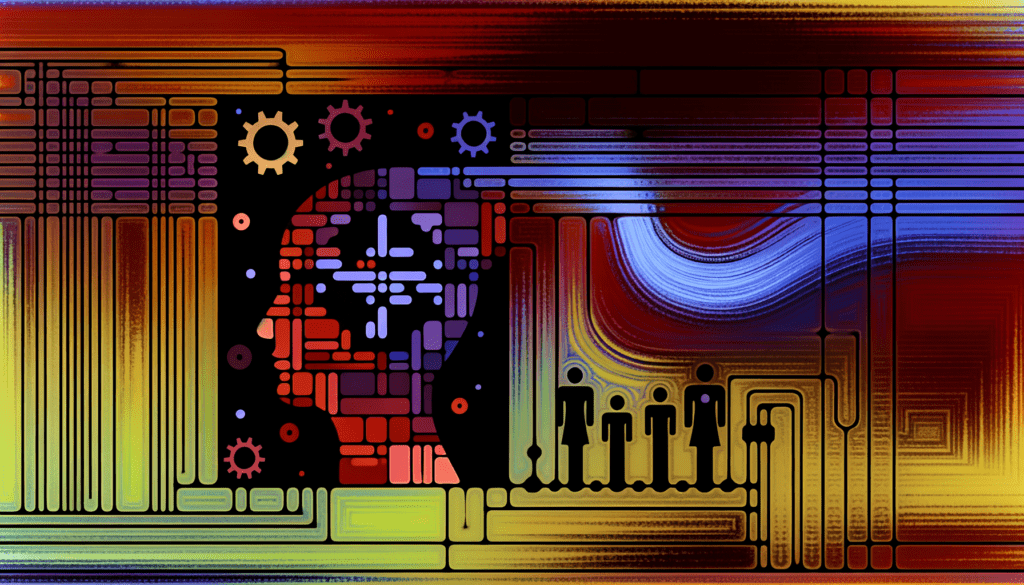California Leading the Way in AI Employment Regulation
As artificial intelligence steadily embeds itself into our everyday lives, the question of how much authority AI should wield, especially in workplaces, grows ever pressing. Recently, California’s Senate Bill 7 seeks to set a transformative precedent. This landmark bill explicitly prohibits employers from using AI technologies in hiring processes to deduce an applicant’s criminal or credit history from social media screening activities.
Historically, California has been a frontrunner in implementing progressive employment laws designed to protect workers’ rights and uphold fairness in hiring practices. SB 7 follows in that noble tradition, addressing the unchecked influence AI could exert on employment opportunities, exemplified in previous cases like “All of Us or None v. Hamrick,” which fundamentally shifted the landscape of background validation. Prohibiting the use of AI to infer sensitive histories eliminates one avenue for systemic bias and inequalities perpetuated through algorithmic hiring methods. Political and labor advocates have welcomed the legislation, highlighting its potential to unlock fairer treatment and unbiased professional opportunities for all Californians.
Emerging Ethical Concerns of AI Rights
Meanwhile, tech leaders are advancing an unfamiliar and somewhat controversial idea: granting AI models certain rights usually reserved for living workers. Recently, Anthropic CEO Dario Amodei sparked widespread debate after suggesting that advanced AI might someday deserve basic ‘workers’ rights’, encapsulated by the eccentric notion of equipping AI with an “I quit” button should tasks prove upsetting.
Though Amodei’s idea received ample skepticism, it underscores a rapidly approaching philosophical and ethical challenge presented by increasingly sophisticated AI. Debate participants highlighted the inherent issue: granting anthropomorphic rights to non-conscious entities diminishes genuine human struggles for meaningful workplace protections. Experts stress the importance of labor rights advancements to better working conditions for vulnerable groups, rather than subscribing to futuristic hypothetical ideas that risk overshadowing immediate human rights priorities.
“When contemplating the notion of AI workers’ rights,” says tech ethicist Elena Torres, “we must remain vigilant in ensuring we enhance—not equate or undermine—human dignity in our continual AI exploration.”
Such discussions reveal that technology’s ability to transform workplace culture doesn’t rest merely on increased efficiency, but on setting prudent bioethical boundaries—provoking society and industry players alike to consider deeply consequential questions.
The Power and Potential of AI Agents Explored
On a functional front, artificial intelligence agents are expanding rapidly throughout myriad industries, profoundly reshaping ordinary workflows with their notable aptitude for autonomy and refining productivity. These agents are already adept at complex decision-making capabilities, multi-tasking efficiently, and learning continuously from their engagement with real-world scenarios and environments.
Unlike earlier forms of automation, AI agents can integrate context, adjust strategies in real time, and assist in tasks ranging from customer relationship management to healthcare diagnostics, adding genuine value in operational efficacy. Businesses that sagely employ these technologies extend services and tangibly reduce human workplace frustration stemming from repetitive and monotonous labor—historically lowered morale and job performance.
Yet leveraging AI advancements remains controversial due to layoffs or turnover induced by automation-centric decisions. Claimed cost reductions through AI-driven terminations confront dire realities: increased employee distress, financial instability, and strained morale. Given that recent surveys report significant contemplation by corporations regarding actively replacing human roles with artificial alternatives, such as in the finance and retail sectors, ethical progress must align closely with technological progress.
Navigating AI’s Ethical Roadmap and Regulatory Path
As humanity transitions toward an era deeply interwoven with artificial intelligence, ethical introspection and the subsequent drafting of clear regulatory guidelines cannot be overstressed. In sensing this urgent mandate, the National Institute for Lobbying and Ethics (NILE) recently unveiled their first-ever ethical framework specifically dedicated to AI’s lobbying application. Transparency encompasses the nucleus of their approach—a groundbreaking standard requiring precise disclosures when AI systems are utilized in political or corporate advocacies.
This ethical baseline also recognizes the multi-dimensional capabilities of AI to profoundly enhance civic engagement, enrich democratic participation, and bolster governmental interaction significantly. Transparency provisions rightly acknowledge public hesitations concerning unidentified algorithmic influences, reinforcing deeper democratic accountability and systemic inclusivity. Through conscientious initiation of such transparency codes, meaningful maternalization of AI technologies becomes plausible without renunciation of individual agency or community-oriented values.
Undoubtedly, navigating the integration of computers’ intelligence into humanity’s already complex systems demands not simply admiration of AI’s potentialities but a continuous—even stubborn—vigilance about its intrinsic liabilities and implications. With action-forward, ethically-grounded steps epitomized by regulatory measures akin to California’s initiative and recommended principles prescribed by groups like the NILE, necessary dialectic advances carefully. Embraced reasoning afoot, our society is firmly positioned in ensuring AI remains in complementarity, not conflict, with humankind’s interests, potentials, and equitable diversities.

